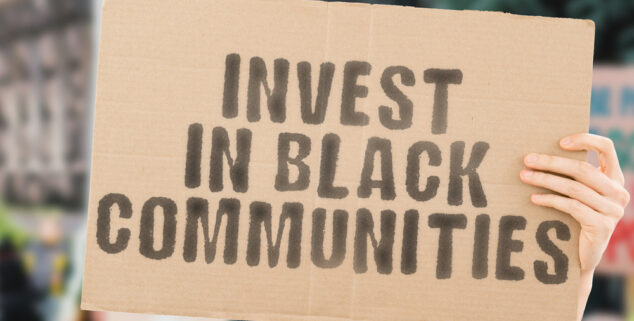Opinion
Beginning reparations by restoring black Californians’ basic civil rights
 Image by AndriiKoval via shutterstock
Image by AndriiKoval via shutterstockOPINION – While cash reparations demand most of the media attention from California’s Reparations Task Force (for good reason), payouts alone will not restore fundamental civil rights to California’s 2.25 million Black residents. As my organization engaged in hundreds of hours of research and community outreach to inform the task force’s historic work, we are magnifying easily achievable steps our legislature can take to achieve reparative justice.
First: treating people who are formerly or currently incarcerated in California, who are disproportionately Black, as citizens with basic rights. It’s been almost 160 years since the 13th amendment ended the institution of human chattel slavery in the US. And yet, the State of California maintains it under the guise of law and order; a system that has unjustly targeted, attacked, and stripped communities of color, especially Black people, of their freedom and forced them to work for little or no pay. Prisoners earn as little as 8 cents an hour for essential work including construction, hospice care, computer coding and firefighting.
It’s time to end this abhorrent practice that disproportionately affects Black people, who because of over-policing and an unjust criminal justice system make up 30 percent of the state’s prison population, despite being 6 percent of Californians. That’s why my organization and our partners are supporting a bill (ACA 8) that would amend the state constitution to end slavery, forced labor and involuntary servitude, including as punishment for a crime.
ACA 8 is about ensuring that we treat all people as citizens with fundamental rights, whether they are incarcerated or not — and that includes the right to vote. A separate bill (ACA 4) would amend the California Constitution to restore voting rights to Californians who are serving time. The reason: voting is not a privilege that can be taken away by the state; it’s a fundamental right of citizenship. By disenfranchising people who are incarcerated, California is infringing on the rights of millions of people while diminishing the voice—and votes—of Black communities, who are already underrepresented at the ballot.
California has other policies on the books that pose severe barriers to voting and representation for Black people, not just those who are incarcerated. One of which is a voter registration system that is unnecessarily complex, excluding 4.7 million residents who are unregistered even though they are eligible to vote, including a disproportionate number of Black people. While California has removed some of its most blatant forms of voter suppression, Black residents’ relatively low rates of voter registration are interwoven with mortal threats of over-policing, incarceration, gentrification, and a housing crisis that just won’t end.
To reduce unnecessary and discriminatory barriers that keep Black voter registration and turnout low relative to white turnout in California, it’s time to move forward with fully automatic voter registration for all eligible voters. It’s a policy that has worked to increase voter turnout in other places that have tried it. And right now, California lawmakers are considering an automatic voter registration law (SB 299) which would expand the electorate to reflect California’s population.
All across the country, Black communities are standing up for our lives and dignity. We reject the second-class citizenship that this society has inflicted on us for centuries, and we’re demanding and asserting our right to be safe and housed, our right to a fair wage for work we choose to do, our right to learn, our right to find good jobs and rewarding lives. All of these rights depend on our right to vote.
Our democracy in California and nationwide is richer and stronger when everyone has an equal voice. As we consider the past and present harms that Black people have endured, let’s also consider our path to truly and comprehensively repair those harms.
It’s time once and for all to eliminate the vestiges of slavery and oppression in California, and to assure that Black people are able to exercise all of our basic rights.
James Woodson is the Executive California Black Power Network
Want to see more stories like this? Sign up for The Roundup, the free daily newsletter about California politics from the editors of Capitol Weekly. Stay up to date on the news you need to know.
Sign up below, then look for a confirmation email in your inbox.

Leave a Reply